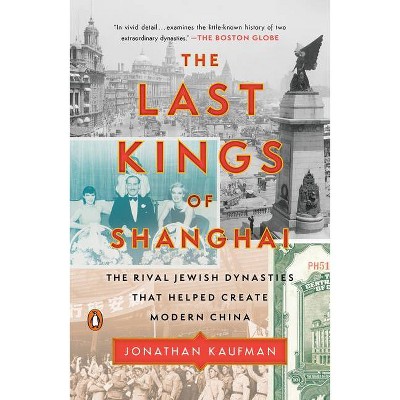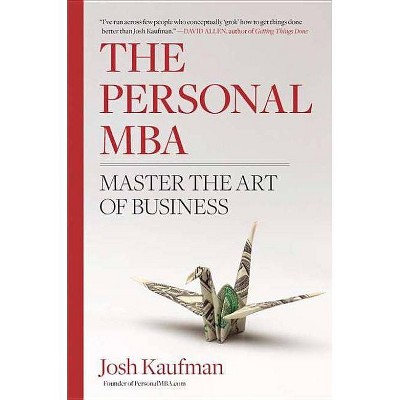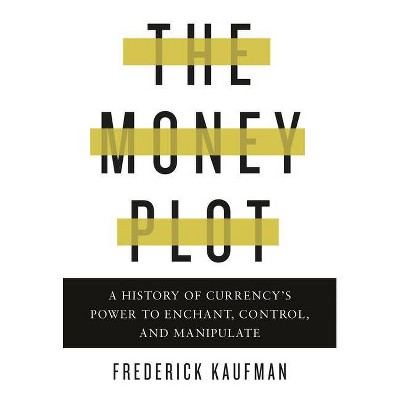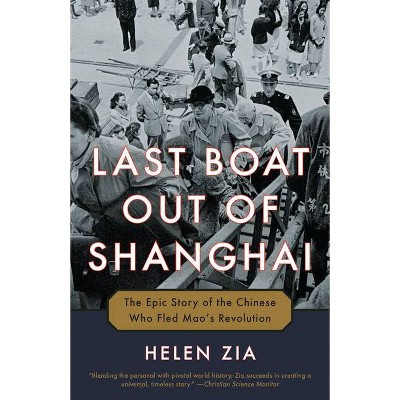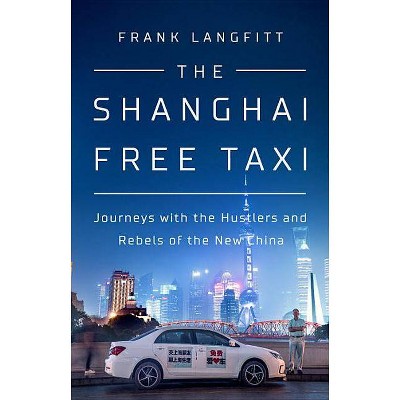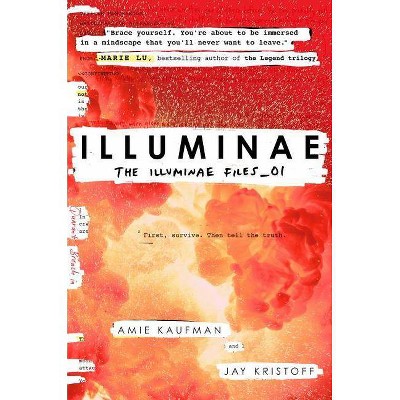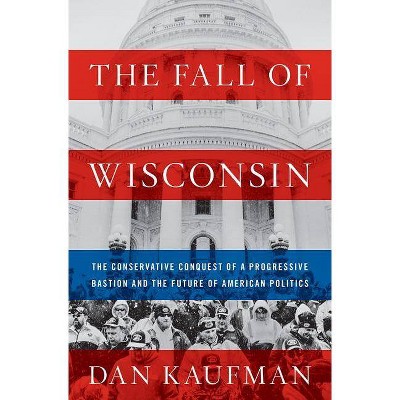The Last Kings of Shanghai - by Jonathan Kaufman (Hardcover)
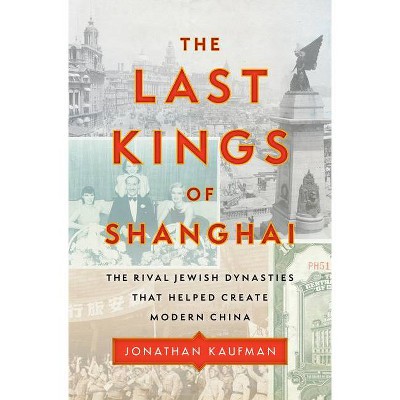
Similar Products
Products of same category from the store
AllProduct info
<p/><br></br><p><b> About the Book </b></p></br></br>"An epic, multigenerational story of two rival dynasties who flourished in Shanghai and Hong Kong as twentieth-century China surged into the modern era, from the Pulitzer Prize-winning journalist Shanghai, 1936. The Cathay Hotel, located on the city's famous waterfront, is one of the most glamorous in the world. Built by Victor Sassoon--billionaire playboy and scion of the Sassoon dynasty--the hotel hosts a who's who of global celebrities: Noel Coward has written a draft of Private Lives in his suite, Charlie Chaplin entertained his wife-to-be, and the American socialite Wallis Simpson reportedly posed for dirty photographs. A few miles away, Mao and the nascent communist party have been plotting revolution before being forced to flee the city. By the 1930's, the Sassoons had been doing business in China for a century, rivaled in wealth and influence by only one other dynasty--the Kadoories. These two Jewish families, both originally from Baghdad, stood astride Chinese business and politics for more than one hundred seventy-five years, profiting from the Opium Wars; surviving Japanese occupation; courting Chiang Kai-shek; and nearly losing everything as the Communists swept into power. In The Last Kings of Shanghai, Jonathan Kaufman tells the remarkable story of how these families ignited an economic boom and opened China to the world, but remained blind to the country's deep inequality and to the political turmoil on their doorsteps. In a story stretching from Baghdad to Hong Kong to Shanghai to London, Kaufman enters the lives and minds of these ambitious men and women to forge a tale of opium smuggling, family rivalry, political intrigue, and survival. He also tells the triumphant story of how they joined to rescue and protect eighteen thousand Jewish refugees fleeing Nazism."--<p/><br></br><p><b> Book Synopsis </b></p></br></br><b>In vivid detail... examines the little-known history of two extraordinary dynasties.<i>--The Boston Globe</i> <p/>Not just a brilliant, well-researched, and highly readable book about China's past, it also reveals the contingencies and ironic twists of fate in China's modern history.<i>--LA Review of Books</i> <p/>An epic, multigenerational story of two rival dynasties who flourished in Shanghai and Hong Kong as twentieth-century China surged into the modern era, from the Pulitzer Prize-winning journalist</b> <p/>Shanghai, 1936. The Cathay Hotel, located on the city's famous waterfront, is one of the most glamorous in the world. Built by Victor Sassoon--billionaire playboy and scion of the Sassoon dynasty--the hotel hosts a who's who of global celebrities: Noel Coward has written a draft of <i>Private Lives </i>in his suite and Charlie Chaplin has entertained his wife-to-be. And a few miles away, Mao and the nascent Communist Party have been plotting revolution. <p/>By the 1930s, the Sassoons had been doing business in China for a century, rivaled in wealth and influence by only one other dynasty--the Kadoories. These two Jewish families, both originally from Baghdad, stood astride Chinese business and politics for more than 175 years, profiting from the Opium Wars; surviving Japanese occupation; courting Chiang Kai-shek; and losing nearly everything as the Communists swept into power. In <i>The Last Kings of Shanghai, </i> Jonathan Kaufman tells the remarkable history of how these families participated in an economic boom that opened China to the world, but remained blind to the country's deep inequality and to the political turmoil at their doorsteps. In a story stretching from Baghdad to Hong Kong to Shanghai to London, Kaufman enters the lives and minds of these ambitious men and women to forge a tale of opium smuggling, family rivalry, political intrigue, and survival. <p/>The book lays bare the moral compromises of the Kadoories and the Sassoons--and their exceptional foresight, success, and generosity. At the height of World War II, they joined together to rescue and protect eighteen thousand Jewish refugees fleeing Nazism. Though their stay in China started out as a business opportunity, the country became a home they were reluctant to leave, even on the eve of revolution. The lavish buildings they built and the booming businesses they nurtured continue to define Shanghai and Hong Kong to this day. As the United States confronts China's rise, and China grapples with the pressures of breakneck modernization and global power, the long-hidden odysseys of the Sassoons and the Kadoories hold a key to understanding the present moment.<p/><br></br><p><b> Review Quotes </b></p></br></br><br><i>The Last Kings of Shanghai</i> is not just a brilliant, well-researched, and highly readable book about China's past, it also reveals the contingencies and ironic twists of fate in China's modern history.<i><b>--LA Review of Books</b></i> <p/>Engrossing . . . Kaufman is an old China hand based on stints with the Boston Globe and the Wall Street Journal, so he brings a reporter's eye for stories as a way of explaining so much more . . . It's a story that will excite readers.<i><b>--Forbes</b></i> <p/>"<i>The Last Kings of Shanghai </i>examines the little-known history of two extraordinary dynasties. In the end, if not in the beginning, they were, as Kaufman puts it, 'on the wrong side of history.' But now, thanks to him, they are at least part of history."<i><b>--The Boston Globe</b></i> <p/>A multigenerational epic of the Sassoon and Kadoorie dynasties, which rightly takes business out of the shadows and puts it at the heart of modern China's history . . . The author entertainingly contrasts the undisciplined Sassoons with the strict approach of Kadoorie and his sons Lawrence and Horace . . . The book is excellent too on China's tumultuous history . . . This work does a great service in putting business at the heart of a key development -- China's re-emergence. <i><b>--Financial Times</b></i> <p/>Few histories have been written about the Sassoons and Kadoories in part because the families didn't welcome the attention . . . Kaufman visited an impressive roster of archives to uncover new details.<i><b>--</b></i><b><i>The Wall Street Journal</i></b> <p/>"Illuminating . . . It is surely not the end of the story.<i><b>--The Economist</b></i> <p/><i>The Last Kings of Shanghai</i> reminds us of that time in captivating detail, and even more surprising, reveals that those last kings were displaced Jews from Baghdad who mastered Great Britain's tools of empire. <i><b>--</b></i><b>Airmail.com </b> <p/>Kaufman writes with style and strikes a careful balance between holding the families accountable for their "colonial assumptions" and celebrating their accomplishments. This richly detailed account illuminates an underexamined overlap between modern Jewish and Chinese history.<i><b>--Publishers Weekly</b></i> <p/>An absorbing multigenerational saga . . . of two significant Jewish families who built wildly prosperous financial empires in Shanghai and Hong Kong that lasted for nearly two centuries . . . Kaufman argues persuasively that their entrepreneurial drive built a lasting capitalist legacy in the country.<b>--<i>Kirkus Reviews</i></b> <p/>A fascinating look at two powerful dynasties as well as a sharp lens through which to view Shanghai's ups and downs.<b>--<i>Booklist</i></b> <p/>"What's even less likely than a clan of displaced Baghdadi Jews who find themselves in twentieth-century Shanghai and change it forever? Try two clans of displaced Baghdadi Jews. This is the tale that Jonathan Kaufman tells in his remarkable history of the Sassoon and Kadoorie families. Read it and the Bund will never look the same."<b>--Peter Hessler, author of <i>River Town: Two Years on the Yangtze</i> and <i>Oracle Bones: A Journey Through Time in China</i></b> <p/>"With exacting research and masterful prose, Kaufman excavates the tremendous influence of two Jewish families, both with roots in Baghdad, on China's layered and complex modern history. An astonishing read, on every level. "<b>--Georgia Hunter, author of <i>We Were the Lucky Ones</i></b> <p/>"Jonathan Kaufman shows how the families of Sassoon and Kadoorie surfed the vicissitudes of history to dominate their chosen arenas commercially and socially. They were indeed 'Kings', but it was the great city of Shanghai that was to both make and break them." <b>--Paul French, author of <i>Midnight in Peking</i> and <i>City of Devils</i></b> <p/> "Gripping and epic in sweep, <i>The Last Kings of Shanghai</i> reads like a thriller but is also enormously informative, offering a vibrant history of the cities of Shanghai and Hong Kong through the fascinating lens of two rival Jewish dynasties that helped shape them." <b>--Amy Chua, author of <i>Battle Hymn of the Tiger Mother</i> and </b><i><b>Political Tribes</b></i> <p/>Jonathan Kaufman mines a rich vein of untold history that knits together the Jewish diaspora with the stirrings of Revolution in modern China. The improbable saga of the Sassoon family reads like an eastern and Sephardic companion to the story of the Warburgs--a saga both personal and political, riveting and ultimately heartbreaking. And in Kaufman's always-deft hands, it's a terrific read.<b>--Roger Lowenstein, author of <i>America's Bank: The Epic Struggle to Create the Federal Reserve</i></b> <p/> Kaufman brings to life the extraordinary forgotten history of two Jewish families who helped transform China into a global economic powerhouse. A masterpiece of research, <i>The Last Kings of Shanghai</i> is a vivid and fascinating story of wealth, family intrigue, and political strategy on the world stage from colonialism to communism to globalized capitalism.<b>--Susannah Heschel, Eli Black Professor of Jewish Studies, Dartmouth College</b><br><p/><br></br><p><b> About the Author </b></p></br></br><b>Jonathan Kaufman</b> is a Pulitzer Prize-winning reporter who has written and reported on China for thirty years for <i>The Boston Globe</i>, where he covered the 1989 massacre in Tiananmen Square; <i>The Wall Street Journal</i>, where he served as China bureau chief from 2002 to 2005; and <i>Bloomberg News</i>. He is the author of <i>A Hole in the Heart of the World: Being Jewish in Eastern Europe</i> and <i>Broken Alliance: The Turbulent Times Between Blacks and Jews in America</i>, winner of the National Jewish Book Award. He is director of the School of Journalism at Northeastern University in Boston.
Price History
Price Archive shows prices from various stores, lets you see history and find the cheapest. There is no actual sale on the website. For all support, inquiry and suggestion messagescommunication@pricearchive.us
